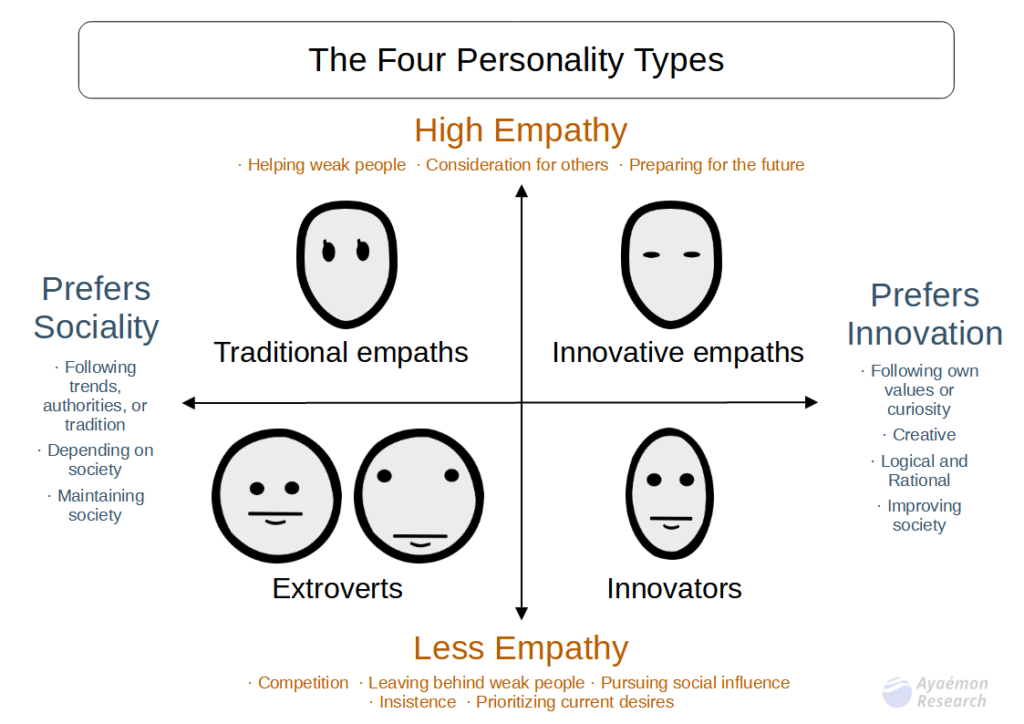Since I will go to my brother’s pastry shop and help him today, let’s talk about something that recently made me consider briefly. It is about the mental logic of using a coquettish voice.
By the way, this article was written the previous day and scheduled.
Why did she speak in such a husky voice?
Recently, I saw a reporter on a variety TV show who deliberately used a hoarse, raspy voice—almost like an anime voice actor. She traveled through old towns and narrated the local tourist attractions with that tone.
Although such a husky voice fits anime, it felt out of place for a realistic introduction.
However, there was a contradiction in my senses. She seemed to have become famous for her raspy-voiced travel logs on YouTube and made a guest appearance on that TV program. If everyone disliked her style, she would not be so popular.

We may sometimes encounter such contradictions between our senses and reality. Although we don’t like it, other people like it. That confuses us.
In my case, I often convince myself by recognizing people’s psychology, including the reporter’s mind. Let’s look at how I recognized the above case. This perspective may help you convince yourself of the difference in senses.
The four types of personality
When explaining the differences in perception, I often use the four types of personality, as shown in the following image:

Two axes classify our personality: empathy and logical sense.
- Empathy enables us to feel others’ emotions. Since its purpose is to help weak people, empathic people tend to be drawn to those who seem immature and vulnerable.
- Logical sense enables us to act based on rationality. It provides a strong interest in specific things and makes us unique. It makes us dislike unnaturalness without reason.
Her inner complex
That classification highlights why the reporter intentionally used a coquettish voice.
From my perspective, she was an empathic but less logical person with an inferiority complex toward unique people. She may believe that standing out provides her with opportunities to be noticed and loved by people. However, she didn’t have the logical sense that gives uniqueness.

On the other hand, she had empathy, which made her attracted to vulnerable people. A hoarse, raspy voice like an anime character makes the person appear to be a strange and weak individual in reality. Such a girl often deserves to be socially hated and excluded.
She may have felt a sense of uniqueness and attachment to that frailty. Portraying herself as weak could make other empathic people love and help her.
The contradiction that creates discomfort
However, there is an inconsistency. Weakening oneself socially to gain social strength is contradictory.
From a social perspective, pretending to be weak and receiving someone’s help hinders the social aid for those who are truly in need. In other words, she took help away from those weaker than herself. It goes against the purpose of empathy.
That is why we often feel discomfort toward such a person. She is displaying an unnatural, unnecessary individuality to satisfy her ego.

However, such complex-driven weakness tends to attract similar people. In a large market like the internet, such complexity can be useful.
The more socially accepted she becomes, the more she will be aware of her contradiction. That will lead her to face her inferiority complex.
Whether she ignores it or tolerates it, she will struggle with her empathy. Overcoming such inner confusion will allow her to show her true individuality.
Conclusion
That is the logic I convinced myself of.
We may sometimes encounter confusion between our senses and reality.
Recognizing people’s psychology allows us to resolve them.
This perspective may help you convince yourself of the difference in senses.
Thank you for reading this article. I hope to see you in the next one.


